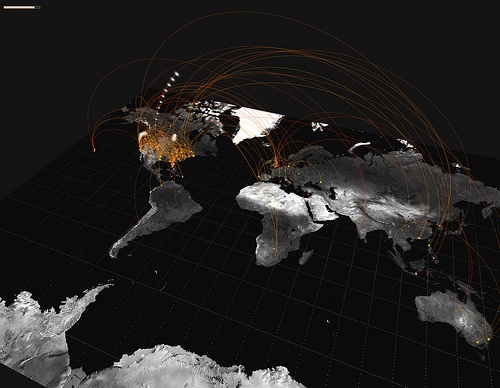Time to ‘join’ the revolution: a call to action for transparency initiatives
It’s a well known fact that summer brings out the revolutionaries. As the temperature rises, so does the level of rhetoric demanding social change:
- “We need a transparencyAccording to OGP’s Articles of Governance, transparency occurs when “government-held information (including on activities and decisions) is open, comprehensive, timely, freely available to the pub... More revolution, so citizens can see exactly where and how taxes, aidMore and better information about aid helps partner countries and donor institutions plan and manage aid resources more effectively, parliaments and civil society to hold governments accountable for t... and revenues from extractive industriesApplying open government values of transparency, participation, and accountability to extractive industries can decrease corruption, safeguard community interests and needs, and support environmental ... are spent.”
- “We call for a data revolution for sustainable development.”
- “Governments should publish information on laws, budgets, spending, national statistics, electionsImproving transparency in elections and maintaining the independence of electoral commissions is vital for promoting trust in the electoral system, preventing electoral fraud, and upholding the democr... More and government contracts.”
What is less usual is for the above statements to come from Presidents, Prime Ministers and other dignitaries serving on the G8 and a UN High Level Panel (See Point 10 of the G8 Declaration 2013 and p.9 and 21 of High Level Panel Report on Post-2015 Development Agenda).
Now, I’m not one to turn down an open invitation; if world leaders want a transparency revolution, then the least we can do is join it. Literally.
Let me explain….
In a recent article Jamie Drummond of the ONE campaign outlined a need to join up the dots on transparency or risk duplication of effort and missed opportunities. We agree. Not only should we join the dots, but we must ensure that the resulting picture is detailed enough to reflect the reality of people’s lives. This means being able to combine information on financial resources with accurate service information, census data, poverty statistics, broader human development indicators, population demographics, administrative infrastructures, policy information and feedback from citizens. This will ensure that limited finances are targeted where they are needed most.
The good news is that more data sets are being published. However, as this trend accelerates we risk building silos around different initiatives and sectors. Turning ‘more data’ into ‘better information’ requires collaboration between multiple partners to make sure data can be connected together and converted into accessible, relevant information as easily as possible. This push for joined-up data means together we need to (the technical bit…):
- Find the intersections: Financial data, demographics, social and economic indicators contain intersections that allow disparate datasets to be combined and for one to enrich the understanding of another;
- Use the same description: If the intersecting fields are commonly defined and categorised across datasets (i.e. global standards creating common reporting codes and protocols for time, money, geography, organisation identifiers and functional classifications) joins between datasets become possible.
- Do it the same way: If the authors of standards and reporting languages adopt interoperable protocols it will become possible for these joins to be executed automatically.
What happens next?
Drawing on our experience of statistical analysis and our work as part of the International Aid Transparency Initiative, Development Initiatives is keen to start a conversation with other sector-specific transparency initiatives (official statistics and open dataBy opening up data and making it sharable and reusable, governments can enable informed debate, better decision making, and the development of innovative new services. Technical specifications: Polici...) to identify priority areas for action in joining-up the data.
In particular, we’re keen to host an open workshop with other transparency initiatives alongside the Open Government PartnershipThe Open Government Partnership (OGP) is a multi-stakeholder initiative focused on improving government transparency, ensuring opportunities for citizen participation in public matters, and strengthen... More meeting in London in November 2013 which we hope can be a first step towards the formation of the post-2015 ‘Global Partnership on Development Data’.
The rallying-cry has sounded. It’s time to ‘join’ the revolution.
Read our full briefing paper: Joined Up Transparency: Turning more data into better information to end poverty- available on the DI website
Contact us: Andrew Palmer is Senior Engagement and Advocacy Adviser for Development Initiatives @andrewepalmer @devinitorg

